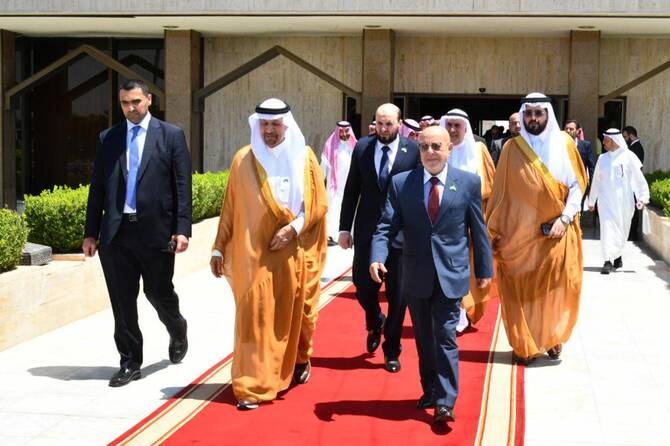Major Investment Deals Announced
On Thursday in Damascus, Syria and Saudi Arabia unveiled forty seven new investment deals worth over six billion dollars. The agreements cover real estate, telecom, finance, housing repair, tourism, health centers, and entertainment venues. They also include plans for three new cement factories.
The signing took place at the Syrian‑Saudi Investment Forum. Saudi officials said the deals represent the largest single economic backing for Syria since President Bashar Assad’s fall.
Job Growth and Local Impact
Syrian Information Minister Hamza al‑Mustafa said the new investments should create about fifty thousand direct jobs and one hundred fifty thousand more indirect roles. For a nation still healing from years of war, these figures offer a real boost.
Local builders, telecom workers, tour guides, and factory staff all stand to gain work. At the same time, new health centers and tourism sites could draw visitors back to damaged towns and cities.
Key Projects Highlighted
Among the headline projects is Al‑Jawhara Tower, a thirty two story skyscraper planned for central Damascus. Saudi Investment Minister Khalid Al‑Falih and over one hundred fifty business leaders joined the forum to back this scheme, which carries a price tag above one hundred million dollars.
In addition, Saudi firms opened a twenty million dollar white cement plant in Adra Industrial City. That factory will hire about one hundred thirty workers on site and support more than one thousand jobs nearby.
Far‑Reaching Challenges Ahead

Even though six billion dollars is a large sum, Syria still faces huge costs to fix roads, homes, and public services. A United Nations study from two thousand seventeen put the bill at no less than two hundred fifty billion dollars. More recent estimates say the total may top four hundred billion. In that light, the Saudi pledge is only a start. Syria must still deal with sect clashes in Sweida province and the effects of recent air strikes on government sites in Damascus.
Shifting Regional Ties
Saudi Arabia has grown closer to Syria’s interim leaders since Assad left office in December twenty twenty four. Along with Qatar, Riyadh paid off fifteen million dollars of Syria’s debt to the World Bank. It has also pushed to lift some sanctions on Syria. This broad shift signals a new chapter in Middle East relations and may change how aid and trade flow through the region.
Personal Analysis
I find the Saudi commitment a smart move for all sides. For Syria, any help is better than none. It will let people return home and rebuild daily life in places they once fled. For Saudi Arabia, these ties may bring new markets and political sway. Still, real change will only come if projects finish on time and local workers gain the needed skills. Only then can this six billion dollar plan prove more than a promise and become a clear path to normal life for many families.
Sources: gulfnews.com

